Human rights with teeth (I) – Battle of Europe

- Dirty money and the perfect crime
- Russia and negotiations with a pointed gun
- Bloodletting – how not to destroy your health
- A call for leadership – human rights with teeth
Dear friends,
Five months from now, on 5 May 2019, the Council of Europe, Europe's leading human rights institution, will turn 70. Whether this will be an occasion for joy or mourning, for pride or shame, will be decided in the coming weeks.
Never in its history has the legitimacy of the Council of Europe been as threatened as it is today. Four crises are creating a perfect storm: first, an unprecedented corruption scandal, which has yet to receive a serious response; second, an effort at institutional blackmail by the Council's biggest member, Russia, which would, were it to succeed, render the whole organisation unable to resist future bullying; third, a budget crisis caused by the very same member country that could fatally weaken the institution as early as March 2019; and finally a deeply troubling lack of leadership.
This newsletter looks at each of these crises. It appeals to governments – in particular the current Finnish and next French chairs - to take this threat seriously. The legitimacy of the Council of Europe matters. Its destruction would be a harbinger of much worse to come. What is needed are bold measures, both in the Committee of Ministers (the 47 governments) and in the Parliamentary Assembly of the Council of Europe (PACE). These must also appoint and then back a strong and committed new Secretary General from October 2019.
Dirty money and the perfect crime
December 10, 2018 will be a turning point in the history of the Council of Europe, the first day of the trial of three former members of PACE for corruption in Milan. This trial is, so far, the only serious effort to hold anyone criminally accountable for the biggest scandal in the history of the institution. The men who stand accused of corruption to manipulate the Council of Europe are one Italian and two Azerbaijanis:
Luca Volonte (PACE member 2008-2013)
Elkhan Suleymanov (PACE member 2011-2018)
Muslum Mammadov (PACE member 2016-2018)
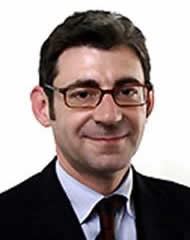
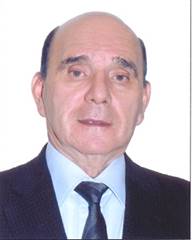
On trial in Milan: Luca Volonte and Elkhan Suleymanov, former PACE members
The basic facts of the case are not disputed. From 2012 until 2014 large sums of money changed hands between the two Azerbaijanis and Luca Volonte, then the leader of the biggest political group in PACE, the European People's Party. Prosecutors found many emails in which they discussed the terms of their cooperation. One email, from 1 February 2013, encapsulates the relationship. It was written after a vote on a resolution on political prisoners in Azerbaijan that Baku wanted to see defeated and which was indeed rejected by a surprisingly large majority in PACE. In the email Luca Volonte addressed Muslum Mammadov like a servant does a master:
"Your wish is my command, so I think that we should discuss the new version [of a motion] during the next meeting in Baku with Elkhan [Suleymanov] and Pushkov [the powerful leader of the Russian delegation to PACE]."
For his services Volonte received € 2.39 million from Azerbaijan, paid to him through offshore bank accounts, including the infamous Danske Bank office in Estonia. In total he was promised € 10 million.
Italian prosecutors accuse Volonte of having abused his position in PACE to support a foreign state for private gain. However, Suleymanov and Mammadov did not act as rogue MPs on their own behalf. They did not spend their own money. There is also no good reason to believe that Volonte was the only MP in PACE paid by Azerbaijan. When ESI published the first report on Caviar Diplomacy in May 2012, the cooperation between Volonte and Suleymanov had not yet begun, but bribing PACE members was already a common practice. Arif Mammadov, who was the Azerbaijani ambassador to the Council of Europe from 2007 to 2012 and later fell out with the regime, said to the PACE investigative body that he had tried to warn Secretary General Thorbjorn Jagland about Azerbaijani "lobbying" during his time in office. He explained that Azerbaijan had a specific budget for caviar diplomacy of € 30 million at the time. A Norwegian daily reported:
"Mammadov claims that he also told Jagland how Azerbaijan authorities were using their so-called 'caviar diplomacy' and extravagant entertaining of PACE members to win support from them."
What is remarkable: none of this evidence led even to calls for a serious investigation into Azerbaijan's methods from the other 46 member-states. As things stand, Azerbaijan committed the perfect crime: for years it used its money to buy positive assessments. When its activity was discovered by chance, this did not lead to any consequences for its membership. The message to members of the Council of Europe is disturbing:
You may be tempted to spend large sums to bribe MPs, to offer them business contracts, to invite them on paid vacations or to blackmail them using methods reminiscent of the Soviet KGB. Why not try? It has worked for more than a decade for Baku. What is the risk? Even if, by chance, you are caught red-handed, you need not fear any consequences. All you need to do then is to send a different set of MPs to Strasbourg.
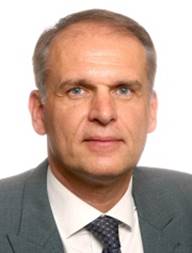

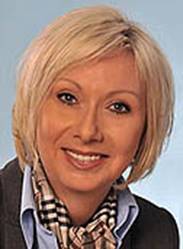
Getting away: Pedro Agramunt, Karin Strenz and Alain Destexhe, former PACE members
While Azerbaijan got away scot-free, PACE followed up on the findings of an independent investigation it set up into "the use of financial means to influence PACE's work concerning Azerbaijan" with a number of individual sanctions for breaches of its code of conduct. Four members of PACE were banned from holding leading positions in PACE for a few years. 16 former PACE members were banned from entering the building of the Council of Europe. And that is it, so far.
Spanish politician Pedro Agramunt, one of Azerbaijan's main apologists in PACE, resigned from his position as PACE president one year ago, which was unprecedented. However, he remains a member of the Spanish Senate. German politician Karin Strenz (CDU) who worked for a lobbying company financed by Azerbaijan also left PACE. She remains a member of the Bundestag and has yet to be sanctioned by the Bundestag. Belgian politician Alain Destexhe also left PACE last year. In 2010, Destexhe had set up an election monitoring NGO registered at his home address that praised Azerbaijani's flawed elections while receiving Azerbaijani money. He remains a member of the Belgian Senate and is publicly praised by his ally from the francophone Mouvement Reformateur, Belgian foreign minister Didier Reynders.
More than one decade ago, Italian football fans learned that the managers of some of their most important clubs had arranged for "friendly" referees to officiate at their games. In response the Italian football federation appointed an extraordinary commissioner to investigate, and a football tribunal imposed serious sanctions against top clubs. Juventus Turin was relegated to a lower division.
It cannot be right that corruption is taken more seriously in the Italian football federation than in the Council of Europe. It is a European scandal that the only people interested in getting to the bottom of this affair are a few prosecutors in Milan. And that the only reason evidence for the biggest corruption scandal in the history of the Council of Europe came to light in 2016 was that these Italian prosecutors were doing their job. Where were the Council's member states? Where are they now?
Russia and negotiations with a pointed gun
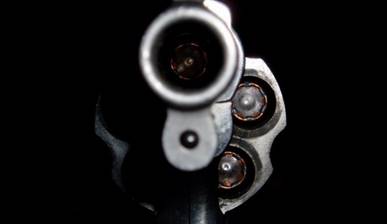
October 2018 – ESI paper: "Negotiating with a pointed gun"
Next week on 10 December, on the same day as the Milan court case opens, the Rules Committee of PACE will meet in Paris. Rumours abound in the corridors of Strasbourg that this committee might give in to one of the most blatant instances of blackmail in the history of the Council of Europe.
Here is what has taken the Council of Europe to this point:
In early 2014 Russian troops occupied Crimea and annexed Ukrainian territory. This was a clear violation of a core principle of the 1949 Statutes of the Council of Europe: "the pursuit of peace based upon justice and international co-operation."
Following this aggression PACE members had three options. They could ignore Russia's action. They could kick out the Russian delegation from PACE until the end of the year 2014 ("non-ratification or reconsideration of credentials"). Or they could allow the Russian delegation to take part in PACE sessions but withdraw its voting rights during 2014. This was the softer of the two sanctions available to PACE, and it was what a monitoring report at the time suggested, calling for "a staggered response in any sanctions". It was accepted by the assembly.
The Russian response was harsh. Alexey Pushkov, the head of the Russian delegation to whom Volonte referred in his email back in 2013, warned that Russia would quit the Council of Europe. It was a bluff, repeated several times in the following years. When PACE met again to discuss Russia in January 2015 fighting had spread to Eastern Ukraine and a Malaysian plane leaving from Amsterdam had been shot down by Russian-backed rebels with Russian weapons over Eastern Ukraine. A majority voted in favour of suspending the voting rights of the Russian delegation for another year. The Russian delegation decided to boycott PACE altogether, and Alexey Pushkov repeated his threat: "We are leaving PACE before the end of the year."
The end of 2015 came and went. Russia remained and increased its threats. Leonid Slutsky, chairman of the Duma Committee on International Affairs and PACE member until January 2016, warned:
"Russia will return only if certain decisions are changed, namely, the denial of the right to vote and other discriminatory actions… [only] if such discriminating decisions cannot be taken in the future with respect to the delegation of Russia or other national delegations."
Russia demanded now that PACE should deprive itself of the right to use sanctions at any time against any delegation in the future. It began to boycott the assembly in 2016 and did so again in 2017 and 2018. As PACE Secretary General Wojciech Sawicki noted, since early 2016 there have been no "sanctions" against the Russian delegation, and "the absence of the Russian delegation has been a result of its own decision." Sawicki added that throughout its history PACE
"has been extremely cautious when considering the non-ratification of credentials, and it has been extremely reluctant to turn down credentials. This has happened only twice – in respect of the delegations of Greece in 1969 and Turkey in 1981 … Deprivation of some of the rights of national delegations has happened only three times in the history of the Assembly – each time with respect to the delegation of the Russian Federation (2000, 2014 and 2015)."
The response of the Council to Russia's attempted blackmail should have been firm and principled. It was not. Instead, negotiations began over the best way to meet Russian demands. Russia, emboldened, piled on more pressure. As of 1 July 2017, it stopped paying its contribution to the budget of the Council of Europe. It demanded the "full and unconditional restoration of the credentials of the delegation."
In September 2018, Belgian PACE member Petra De Sutter published a report with recommendations that met Russia's key demands half way. She recommended that the PACE Rules of Procedure be changed. She suggested the number of votes needed to sanction any delegation to be raised from a simple to a two-thirds majority. De Sutter also recommended exemptions to the suspension of voting rights so that affected members could continue to participate in the elections of ECtHR judges, the Secretary General of the Council and other key positions.
On 8 October ESI published a paper and sent it to all the members of PACE, arguing against adopting these changes:
Negotiating with a Pointed Gun – Sanctions, Appeasement and the Role of Russia in the Council of Europe (8 October 2018)
On 9 October 2018 Petra De Sutter's report was debated in the assembly. She claimed that this was "not about Russia." In the intense debate that followed and which lasted three hours few agreed with this assessment. Roger Gale, the Tory leader of the British delegation, called on his colleagues "to send out a very clear message today, as we have done before: the Parliamentary Assembly, the elected body of the Council of Europe, is not for sale at any price. We cannot give in to blackmail." Emanuelis Zingeris, and EPP-member from Lithuania, warned: "We should have these discussions without any pressure. It is like having a gun at our head." Sylvain Waserman, a Liberal from France, stated: "We must not weaken the procedures for challenging credentials, and thereby weaken the whole Assembly … We must not sacrifice our ability to act or our fundamental values on the altar of realpolitik." Phil Wilson, a Labour MP from the United Kingdom, noted that "we should not let the transgressor get away with the transgression." Another British MP, Edward Leigh, asked: "Why did the Committee of Ministers rush it through? For one reason only: to let Russia back into this Assembly." Mart van de Ven, the Dutch leader of the liberal ALDE group, warned that changing the rules of sanctions now "would be detrimental to the integrity, respectability and authority of PACE." Instead of having a vote, De Sutter asked to refer the report back to the Rules Committee. Meanwhile Russian MP Leonid Slutsky from Vladimir Zhirinovsky's party insisted that PACE accept Russian demands: "The question is whether PACE dares do that."
What next? Some within the Secretariat and the PACE Bureau in Strasbourg argue that changes to please Russia might be achieved even without being voted on in the assembly, through a simple decision in the rules committee which De Sutter chairs already next week in Paris. There debates and votes are shrouded in secrecy. Also, in the October report, De Sutter had stated that the matter of how to deal with Russia was an issue that only "the Assembly could decide."
Human rights institutions need teeth. PACE has no more than a few. Pulling these, to please one aggressive member, would send a very bad signal. Doing so without having a vote in the plenary of PACE would be even worse. The rules committee should desist.
Bloodletting – how not to destroy your health
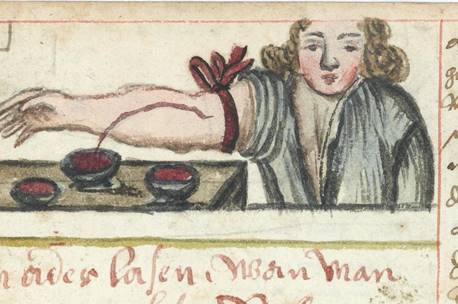
The Council of Europe has 47 member-states with a total population of 820 million people. Its purpose is to promote human rights, democracy and the rule of law. To do this the Council has a headquarter in Strasbourg, some 2,500 staff, 17 field offices and 4 liaison offices. Fulfilling the institution's purpose depends on the contributions of its member states which fund its core bodies: the Secretariat, the Committee of Ministers, the Parliamentary Assembly, the European Court of Human Rights, and the Human Rights Commissioner's office. The budget for 2018 is € 446 million.
Member states pay roughly in proportion to their size. The main contributors are Russia, France, Germany, Italy and the United Kingdom. Members may also contribute additionally on a voluntary basis.
In March 2019, the Secretary General will present a new budget. Russia's refusal to pay may require letting go of hundreds of staff already then. This could seriously weaken the ability of PACE and of the other bodies to carry out monitoring and human rights work in member states. Already, there is talk of "reforming" (i.e. weakening) the PACE monitoring procedure.
Here is a realistic dystopian scenario. PACE gives in to blackmail and changes its rulebook in order to appease Russia. Moscow rejects these changes as insufficient and refuses to pay its dues so emergency cuts to the budget have to be made this coming spring. Russia then returns later next year, to a Council of Europe shorn of legitimacy and of key staff. This is a victory for its autocratic members. It is a defeat for human rights.
This must not happen. It can be prevented. Russia contributes around 7 percent to the Council's budget. If other members pay more, this gap can be covered. No single state would be required to contribute more than 10 million Euros a year: a very small price to pay to immunize the organisation against Russia's financial blackmail. Three countries - Ukraine, Lithuania and Georgia - have offered to do so already at the October PACE session. Others should step up. They can lend money to the Council of Europe, to be repaid with interest (the rules foresee 1 percent a month) when Russia returns.
Russia's bluff will be called soon. According to the Statute of the Council of Europe and a 1994 decision by the Committee of Ministers, the Committee must decide whether to suspend a member that has not paid its dues for two years. By the end of June 2019, Russia will have gone two years without paying its contribution and have a debt of €66 million. It will have to pay or face suspension.
A call for leadership – human rights with teeth
In late September this year the Directorate of Legal Advice of the Council published a legal analysis. It stated that PACE was not only wrong to deny the Russian delegation voting rights in 2014 but that PACE had no right to sanction any delegation ever; in fact, PACE had no power whatsoever. Member-states cooperation with committees – such as the important "Committee on the Honouring of Obligations and Commitments by Member States of the Council of Europe" or, short, the Monitoring Committee - was voluntary:
"the Statute [of the Council of Europe] does not provide the PACE with the power to set up a body which would have any coercive powers vis-à-vis the member states. Cooperation with committees or bodies set up by PACE is thus entirely voluntary."
The clear message: if member states do not like what PACE does, they should feel free to ignore it. This is an extraordinary political message from the secretariat, going further than Russian demands. It also contradicts PACE's Rules of Procedures, which specify, for instance, that "member states shall fully co-operate with the Monitoring Committee."
Unfortunately, Secretary General Thorbjorn Jagland not only stood behind this legal opinion; he even intervened in the October debate to back it:
"We cannot deprive members of this Assembly of their right to vote for justices of the European Court of Human Rights, for the Commissioner for Human Rights and for the Deputy Secretary General and the Secretary General. I am glad that has been said, because otherwise we would continue in a helpless situation in which a member State cannot exercise its rights … and is not contributing to the budget, which is totally unacceptable."
While some in PACE were contemplating meeting Russia (more than) half way, the Secretary General and his legal service presented Russia with an even more precious gift: a decapitated PACE, its head offered on a plate like Herodes did with Saint John the Baptist to please Salome.

What the Council of Europe needs now is leadership. This must come, first and foremost, from the Committee of Ministers and states within it that are committed to upholding the organisation's integrity and core purpose. They must, together with PACE, ensure the election of a Secretary General who is determined and empowered to stand up for these values.
Candidates must submit their candidacy before January 2019. They should stress the following messages:
- Blackmail is never acceptable. PACE should not give in to Russian pressure. Russia should pay its dues;
- Corruption is never acceptable. Any suspicion that systematic corruption took place for more than a decade in order to undermine the institution requires a robust response from the Committee of Ministers, a serious investigation and meaningful sanctions;
- The Council of Europe requires more, not fewer, resources for its core mandate. Member states should commit to making up for any Russia-induced short-fall.
- Monitoring of human rights must not be weakened but strengthened at a time of growing pressure against human rights. Any savings have to be made in other areas.
- The Council of Europe does not want to lose any member, but neither can it afford to lose its purpose. No single member is more important than the credibility of the whole institution. And only an institution with (some) teeth can regain such credibility.
Yours sincerely

Gerald Knaus
- The Atlantic, "Why Countries Aren't Sanctioning the Saudi Government Over Khashoggi" (3 December 2018)
- ESI newsletter: Red Lines, Rotten Apples and human rights in 2019 (19 November 2018)
- ECFR, "Could EU entry bans protect human rights?" - podcast interview with Gerald Knaus - (22 November 2018)
- ESI background paper: Negotiating with a Pointed Gun – Sanctions, Appeasement and the Role of Russia in the Council of Europe (October 2018)
- ESI newsletter: European tragedy – the collapse of Poland's Rule of law (May 2018)
- ESI newsletter: Spring cleaning – the corruption report on the Council of Europe is out (April 2018)
- ESI Briefing Note: From Russia with threats – The PACE summer session and a dramatic turn (July 2017)
- ESI report: The European Swamp (Caviar Diplomacy Part 2) – Prosecutors, corruption and the Council of Europe (2016)
- ESI report: Caviar Diplomacy – How Azerbaijan silenced the Council of Europe (2012)
- PACE, Debate on Petra De Sutter's report (2018 Ordinary Session, Thirtieth sitting) (9 October 2018)
- Report by MP Petra De Sutter to PACE: Strengthening the decision-making process of the Parliamentary Assembly concerning credentials and voting (21 September 2018)

